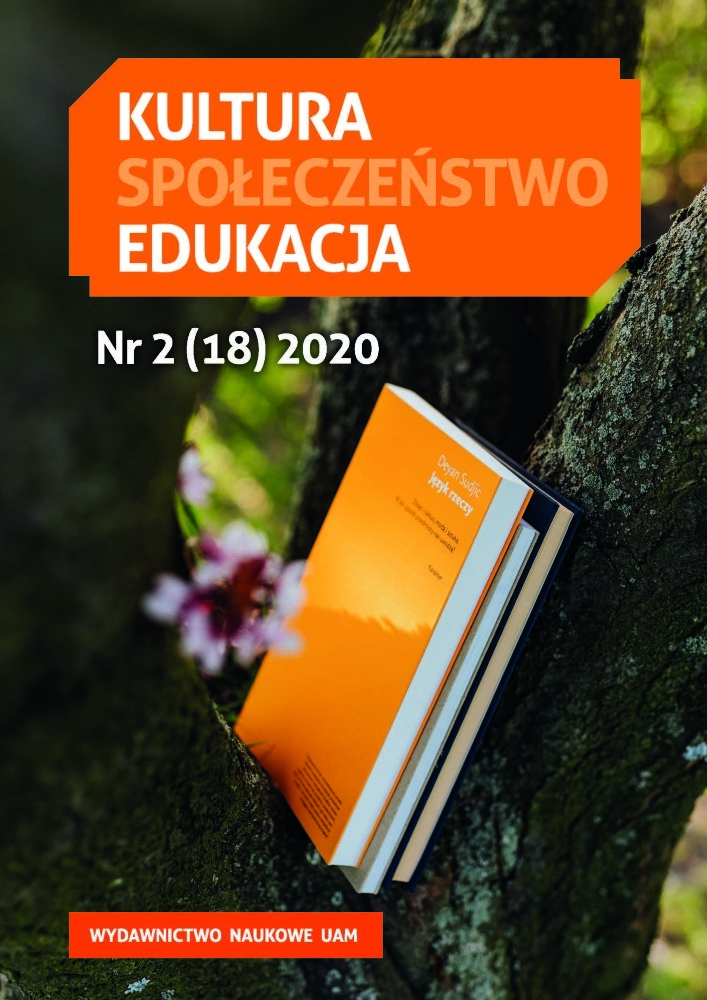Abstract
The last decades have witnessed constant changes andrefor ms in education in many countries. The paradox of these changes is that they require further changes and transformations and further reforms. Education systems do not correlate with the needs of humanity in the 21st century, nor with the emerging new world view. This article aims to examine education from the global of the world of digitization in which we live and to find an answer to the question what is the purpose of education in the 21st century. From the analyses of different pedagogicaltre nds and philosophical assumptions underlying them, a conclusion will be drawn about the need for a philosophy open to new challenges in today’s educational reality in order to achieve this goal. This article will addresskey issues of the VUCA world concerning education such as digitization, educate to the unknown, the phenomenon of global teenagers and the development of robotics.
Literaturhinweise
Adorno T.W. (1978), Wychowanie po Oświęcimiu, „Znak”, nr 285.
Arystoteles (1996), Etyka nikomachejska, przeł. D. Gromska, w: Artystoteles, Dzieła wszystkie, t. 5, Warszawa.
Bank Światowy (2011), Fueling Growth and Competitiveness in Poland Through employment, skills and innovation, http://siteresources.worldbank.org/POLANDEXTN/Resources/304794-1300479015951/Europe2020Poland.pdf [dostęp: 18.09.2017].
Camus A. (1971), Eseje, przeł. J. Guze, Warszawa.
Fry H. (2019), Hello world. Jak być człowiekiem w epoce maszyn?, Warszawa.
Furr N., Dyer J.H. (2014), Leading Your Team into the Unknown, „Harvard Business Review”, 12, https://hbr.org/2014/12/leading-your-team-into-the-unknown [dostęp: 16.11.2019].
Harari Y.N. (2018), 21 lekcji na XXI wiek, Warszawa.
Hatmaker T. (2017), Saudi Arabia bestows citizenship on a robot named Sophia, https://techcrunch.com/2017/10/26/saudi-arabia-robot-citizen-sophia/?guccounter=1&guce_referrer_us=aHR0cHM6Ly9lbi53aWtpcGVkaWEub3JnLw&guce_referrer_cs=NcvPuHe3ugg3L7IVs1uvJA [dostęp: 15.11.2019].
Heidegger M. (1931), Bycie i czas, przeł. B. Baran, Warszawa.
Hejnicka-Bezwińska T. (2015), Praktyka edukacyjna w warunkach zmiany kulturowej, Warszawa.
Januszewska E. (2002), Dojrzewanie do wolności w wychowaniu. Rzecz o A.S Neillu, Warszawa.
Jaspers K. (1932), Philosophie, t. 1–2, Berlin.
Kallas P. (2019), Top 15 Most Popular Social Networking Sites and Apps, https://www.dreamgrow.com/top-15-most-popular-social-networking-sites/ [dostęp: 15.11.2019].
Kosiorek M. (2010), Pedagogika autorytarna a podejście włączające w procesie kształcenia ucznia ze specjalnymi potrzebami edukacyjnymi, „Przegląd Badań Edukacyjnych”, 10–11, s. 143–151.
Krawczyńska-Zaucha T. (2019), A new paradigm of management and leadership in the VUCA world, „Scientific Papers of Silesian University of Technology Organization And Management Series”, 141, pp. 221–230.
Krawczyńska-Zaucha T. (2020), Przywództwo edukacyjne jako fundament zarządzania oświatą w świecie Vuca, w: Edukacja XXI wieku. Strategie zarządzania i kierunki rozwoju, red. T. Krawczyńska-Zaucha, Kraków.
Kwieciński Z., Śliwerski B. (red.) (2019), Pedagogika. Podręcznik akademicki, Warszawa.
McDermott R. (red.) (1984), The Essential Steiner: Basic writings of Rudolf Steiner, San Francisco.
Marcel G. (1962), Być i mieć, przeł. P. Lubicz, Warszawa.
de Mooij M. (2013), Global Marketing and Advertising: Understanding Cultural Paradoxes, London–New York–Singapore.
Neill A.S. (1969), Theorie und Praxis der antyautoritären Erzienhung, Hamburg.
Our Kids (2019), https://www.ourkids.net/pl/raport-o-szkolnictwie.php [dostęp: 15.11.2019].
Paoluš R. (1991), K filosofii vychovy, Praha.
Rawls J. (1994), Teoria sprawiedliwości, Warszawa.
Robinson K. (2012), Zmiana paradygmatu edukacji, https://www.youtube.com/watch?v=_wxcXd5Cnv8 [dostęp: 15.11.2019].
Schaller K. (1977), Erziehung, „Wörterbuch der Pädagogik”, Bd. I.
Schulz L.E., Gopnik A. (2004), Causal learning across domains, „Developmental Psychology”, 40 (2), pp. 162–176, https://https://doi.org/10.1037/0012-1649.40 [dostęp: 16.11.2019].
Seligman M.E.P., Csikszentmihalyi M. (2000), Positive psychology. A an introduction, „American Psychologist”, 55 (1), pp. 5–14.
Śliwerski B. (2019), Pedagogika jako nauka, w: Pedagogika. Podręcznik akademicki, red. Z. Kwieciński, B. Śliwerski, Warszawa.
Weller Ch. (2017), The first-ever robot citizen has 7 humanoid ‘siblings’ – here’s what they look like, https://www.businessinsider.com/sophia-robot-hanson-robotics-other-humanoids-2017-11?IR=T [dostęp: 15.11.2019].
Lizenz
Copyright (c) 2020 Tatiana Krawczyńska-Zaucha

Dieses Werk steht unter der Lizenz Creative Commons Namensnennung - Keine Bearbeitungen 4.0 International.

